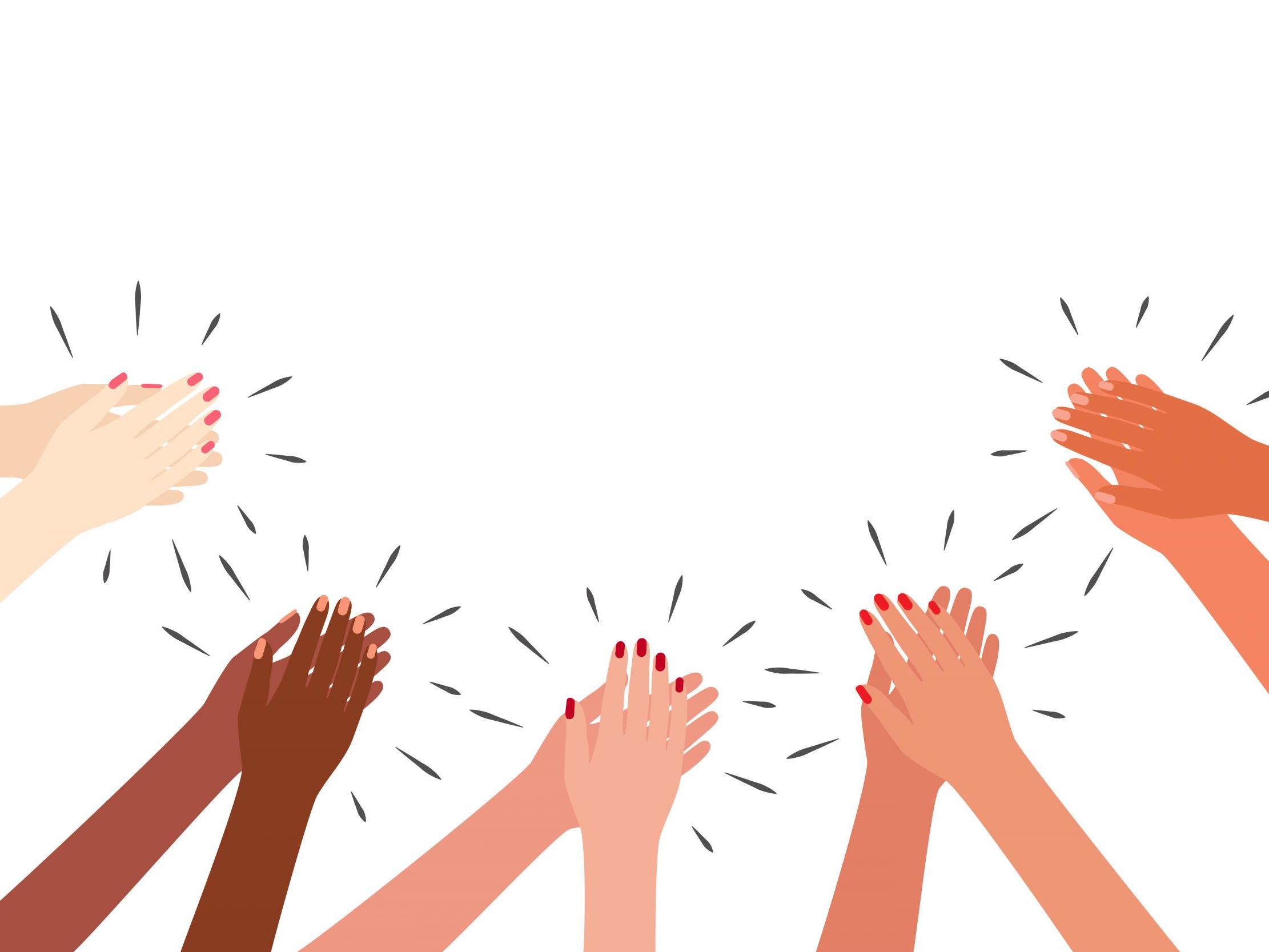I'll miss Clap for Carers - but it can't continue just to appease our guilt
Do we really want to be a country that backs key workers from our doorsteps but won’t actually push for the changes that matter? asks Sophie Gallagher

I was cynical when I first saw a Facebook post in March saying people were planning to ‘Clap for Carers’ on a Thursday evening; how many people would join in? Would it just be one lonely person and a saucepan standing on their doorstep? Particularly in London where accidentally meeting eyes with a stranger on the tube is considered a breach of community etiquette.
It was dark by the time 8pm rolled round and I stood by the window waiting to be disappointed. Instead the noise was overwhelming; church bells, car horns, screaming, whistling, cheering – the clapping was the least of it. The unexpectedness of it – in a country renowned for its stiff upper lip, infrequent flirtation with public emotion, and mild unease around patriotism – made me cry.
Like many others up and down the country on that night, 26 March, I stood with my neighbours and clapped with sincerity, hoping that my small gesture of thanks – amplified by millions of others – would convey our weight of gratitude to those facing the pandemic head on in our hospitals, our care homes, our supermarkets, our buses and trains. As a woman who only exists in the UK because my migrant grandparents came from Ireland to work for the NHS, I felt a swell of pride.
It was also a moment, in those early days of lockdown, to remind ourselves we were not alone. As lonely as being in four walls could feel – particularly for those living by themselves, shielding because of illness, or facing fresh economic uncertainty – we were together. For a country in which 68 per cent of people don’t know their neighbours, 50 per cent don’t feel part of a community, and political division has run rampant in recent years, it was poignant.
Videos shared on social media showed how widespread the clap was – from Lands End to John O'Groats, this wasn’t just a bubble of praise, it was a grassroots movement. Millions of people were now routinely taking two minutes out of their Thursday to show how they felt about the workers tasked with keeping our country together. A renewed respect for those who we had collectively taken for granted. Yes, the government told us we could best play our part in supporting key workers by staying at home, but it was nice to feel we could go a little further.
Then the death toll started rising. By 28 April – a month after that first clap – 100 NHS and healthcare workers had died as a result of Covid-19. As the nation continued clapping and putting rainbows in windows, our small gesture of solidarity began to leave a bad taste with those whom we claimed to support.
Weeks later the clap was bigger than ever before: Prince William and Kate Middleton wheeled their three children out dressed in blue, British icons – the Beckhams and Daniel Craig – all joined in, the hashtags #Clapforcarers and #ThankyouNHS trended for 24 hours before and after the event, we were a nation determined to keep clapping. Some clapped so hard they were taken to A&E with saucepan-related injuries. We even lit up the headquarters of MI5 (and many other buildings) in blue lights to show just how much we cared.
I’d be kidding myself if I claimed it was anything other than middle-class guilt and self-indulgence willing me to continue...
By mid-May the number of dead NHS and healthcare workers was estimated to be at least double at 200 (but we may never know the true number with many deaths unrecorded in the public domain). At this point doctors had been warning of shortages of personal protective equipment (PPE) for over a month: in fact the Royal College of Physicians said the situation was worsening and not getting better. A doctor who warned Boris Johnson about the shortage died because of Covid. Women were said to be at particular risk because they couldn’t even get PPE that fitted.
The government floundered: ordering 400,000 gowns from Turkey that turned out to be useless, all the while the clock was ticking as frontline workers went to work every day knowing they were inadequately protected for the job we were asking them to do. As the nation failed to hold the government to account on issues like PPE – holding their feet to the fire on the problems that key workers were telling us mattered most – the claps began to ring hollow.
More medical staff came forward saying they didn’t need our claps – they needed our help. Not just with PPE, but paying nurses enough that they don’t need to use food banks or getting migrant workers basic rights like the right for their family to remain in the UK if they die. We cannot have nice things if we are hypocrites – a country that backs key workers from our doorsteps but won’t actually push for changes that matter.
Now, in the 10th week of the clap the woman who started the campaign, AnneMarie Plas, has said it is time to hang up our wooden spoons for good. I will miss the clap, the sense of temporary camaraderie it brought in the midst of difficult times. But I’d be kidding myself if I claimed it was anything other than the guilt of someone safe at home, able to work remotely, indulging a fantasy of helping, that was willing me to continue.
Join our commenting forum
Join thought-provoking conversations, follow other Independent readers and see their replies
Comments
Bookmark popover
Removed from bookmarks